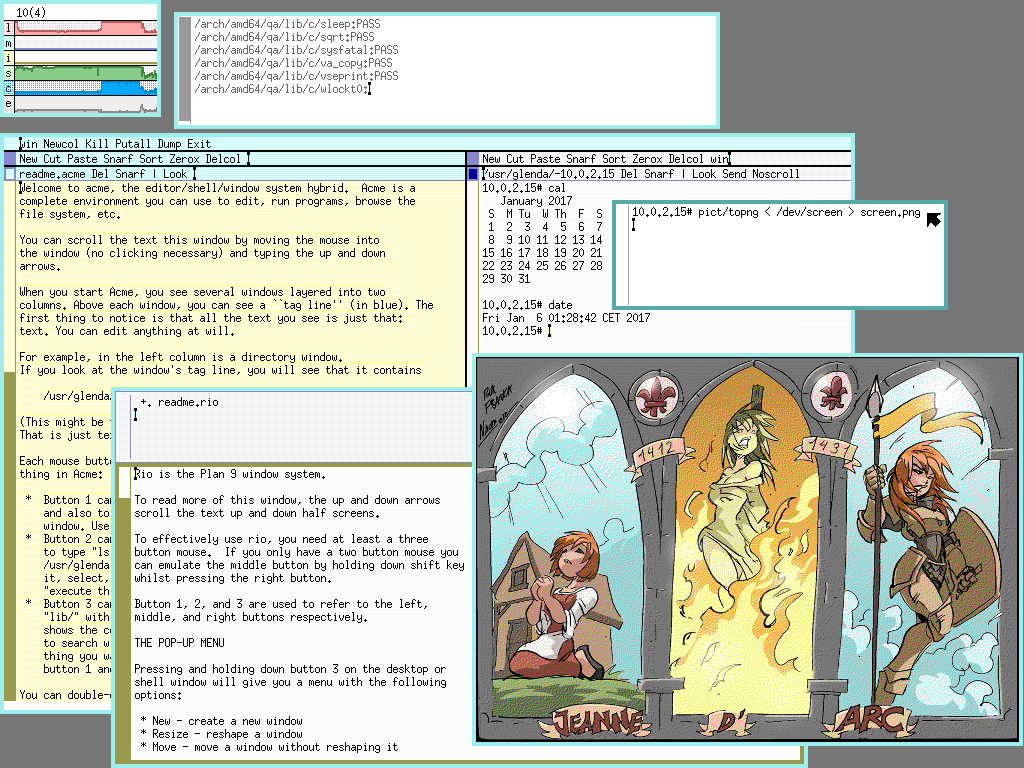Jehanne is a simple operating system.
It shows that few orthogonal abstractions can be composed to provide
everything you want from modern operating systems.
And more.

A vision for simplicity
Jehanne is named after a peasant girl that was burned as an heretic and then canonized as a saint.
Everybody can see why it's an heretic OS: it breaks many traditions of Plan 9 from Bell Labs, it challenges some design decisions and even breaks some common conventions rooted in Unix.
There is no /bin folder. There is no sleep system call.
There is no swap. Markdown replaces troff for documentation.
GCC is the default compiler. 9P2000 is still supported, but replaced.
However, the point of this research is not to disrupt well established habits, but to pursuit a vision for simplicity.
Beware, there's no glory for simplicity: everybody can do it, after.
More with less
Jehanne is simple in many different ways.
The kernel API is minimal and uniform: 26 system calls control devices, memory, IPC, scheduling and namespaces.
Everthing is a file. Really. Even directories.
The default file system provides a clean taxonomy.
The project scope includes a minimal system: compilers, editors, browsers, games...
many useful softwares can be ported to Jehanne through
libposix and
newlib (and soon musl).
Also, Jehanne is free software. And it will always be.
The kernel and older tools are GPLv2, everything new is AGPLv3.
It's not only "formally" open, like many other projects from big names:
you are wellcome to challenge my assumptions, prove I'm wrong, even remove my code.
You just have to make it both simpler and more useful.